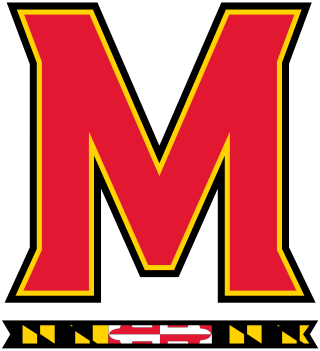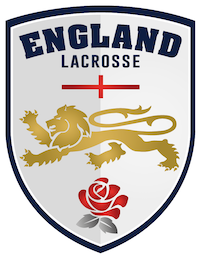
Lacrosse is a contact team sport played with a lacrosse stick and a lacrosse ball. It is the oldest organized sport in North America, with its origins with the indigenous people of North America as early as the 12th century. The game was extensively modified by European colonists, reducing the violence, to create its current collegiate and professional form.
2005 in sports describes the year's events in world sport.

Field lacrosse is a full contact outdoor sport played with two opposing teams of ten players each. The sport originated among Native Americans, and the modern rules of field lacrosse were initially codified by Canadian William George Beers in 1867. Field lacrosse is one of three major versions of lacrosse played internationally. The rules of men's lacrosse differ significantly from women's field lacrosse. The two are often considered to be different sports with a common root. An outdoor six-a-side version, lacrosse sixes, was established in 2021 and features six players per team, reduced field size, and shorter duration to be conducive for daily tournament play. Another version, indoor box lacrosse, is also played under different rules.

Sports in Canada consist of a wide variety of games. The roots of organized sports in Canada date back to the 1770s, culminating in the development and popularization of the major professional games of ice hockey, lacrosse, basketball, baseball, soccer, football and cricket. Canada's official national sports are ice hockey and lacrosse. Golf, baseball, tennis, skiing, ringette, badminton, cricket, volleyball, cycling, swimming, bowling, rugby union, canoeing, equestrian, squash, and the study of martial arts are widely enjoyed at the youth and amateur levels. Great achievements in Canadian sports are recognized by Canada's Sports Hall of Fame, while the Lou Marsh Trophy is awarded annually to Canada's top athlete by a panel of journalists. There are numerous other Sports Halls of Fame in Canada.

Stonehill College is a private Catholic college in Easton, Massachusetts. It was founded in 1948 by the Congregation of Holy Cross and is located on the original estate of Frederick Lothrop Ames Jr., with 29 buildings that complement the original Georgian-style Ames mansion.
The Presidents Cup is a series of men's golf matches between the United States and the rest of the world, held biennially.
Sport at the University of Adelaide is primarily organised by the Adelaide University Sports Association. Other bodies affiliated to the University of Adelaide providing sport include the various sports clubs forming part of the residential colleges and the Roseworthy Agricultural Campus Student Union Council.

The Ontario Lacrosse Association is a not-for-profit sport organization and a member association of the Canadian Lacrosse Association, the national governing body for lacrosse in Canada. The Ontario Lacrosse Association is the largest provincial lacrosse governing body within Canada. The mission of the OLA is to govern, improve, foster, and perpetuate the sport of lacrosse in Ontario. It was established in 1897.
Lacrosse in Australia is a minor sport, with a long and proud history dating back to 1876, with a small but dedicated community of participants and volunteers. The established centres for lacrosse are in the greater metropolitan areas of Melbourne, Adelaide, and Perth. In these cities there are organised weekend field lacrosse competitions for men and women at senior and junior levels, played over the winter months. In the off-season, there are informal box lacrosse and sofcrosse competitions, though the majority of players in Australia are mostly of the field lacrosse type. Some lacrosse is also played in Sydney, South East Queensland, Canberra, Ballarat and Bendigo, it is very much at the developmental level.

Lacrosse in England is an amateur sport played mainly by community based clubs and university teams. Field lacrosse was introduced to England in 1876 by William George Beers and other Canadians who toured the country playing exhibition matches. A second tour was arranged in 1883; by then England had 60 clubs playing regular fixtures in Cambridgeshire, Cheshire, Lancashire, Middlesex and Yorkshire.
Sport in England plays a prominent role in English society. Popular teams sports in England include field hockey, cricket, rugby union, rugby league, and netball. Major individual sports include badminton, athletics, tennis, boxing, golf, cycling, motorsport, and horseracing. Cricket is regarded as the national summer sport. Association football is the most popular sport, followed by Cricket, Tennis and Rugby. A number of modern sports were codified in England during the nineteenth century, among them cricket, rugby union, rugby league, football, field hockey, bandy, squash, tennis, and badminton. The game of baseball was first described in 18th century England.

College lacrosse is played by student-athletes at colleges and universities in the United States and Canada. In both countries, men's field lacrosse and women's lacrosse are played at both the varsity and club levels. College lacrosse in Canada is sponsored by the Canadian University Field Lacrosse Association (CUFLA) and Maritime University Field Lacrosse League (MUFLL), while in the United States, varsity men's and women's lacrosse is governed by the National Collegiate Athletic Association (NCAA), National Junior College Athletic Association (NJCAA) and National Association of Intercollegiate Athletics (NAIA). There are also university lacrosse programs in the United Kingdom sponsored by British Universities and Colleges Sport (BUCS) and programs in Japan.

The Maryland Terrapins men's soccer team represents the University of Maryland in National Collegiate Athletic Association (NCAA) college soccer competition. The program has won four NCAA Division I College Cup national championships. Maryland won nineteen Atlantic Coast Conference (ACC) regular season championships and six ACC tournament championships before joining the Big Ten Conference on July 1, 2014. The Terps won the 2014, 2016, and 2022 Big Ten Conference men's soccer championships and the 2014 and 2015 men's soccer tournament titles.

The North Carolina Tar Heels men's lacrosse team represents the University of North Carolina at Chapel Hill in National Collegiate Athletic Association (NCAA) Division I men's lacrosse. North Carolina currently competes as a member of the Atlantic Coast Conference (ACC) and plays its home games at Fetzer Field and Kenan Memorial Stadium in Chapel Hill, North Carolina. Their main rivalry series is with fellow ACC member Duke.

England Lacrosse is the national governing body for lacrosse in England. The sport is managed through the Men's and Women's Playing Committees and the leagues administered by region: the South of England Men's Lacrosse Association (SEMLA), North of England Men's Lacrosse Association (NEMLA), South East Women's Lacrosse Association (SEWLA), South West Women's Lacrosse Association (SWWLA), and North Women's Lacrosse Association (NWLA). The England Lacrosse CEO is Mark Coups.

The Colby Mules are the varsity and club athletic teams of Colby College, a liberal arts college located in Waterville, Maine. Colby's varsity teams compete in the New England Small College Athletic Conference of the National Collegiate Athletic Association (NCAA) Division III. The college offers 32 varsity teams, plus club sports, intramural sports called I-play.
Stockport Lacrosse Club is a lacrosse club based in Davenport, Greater Manchester, a suburb of Stockport. The club was established in 1876 and is the oldest lacrosse club in England. Stockport currently field both men's and women's lacrosse teams as well as running respective junior programmes. The club have been based at Cale Green Pavilion in Davenport since 1883.

Modern lacrosse in Canada has been a popular sport since the mid 1800s. Only field lacrosse was played until the 1930s, when box lacrosse was invented. In 1994 Parliament passed the National Sports of Canada Act which declared lacrosse to be "Canada's National Summer Sport", with ice hockey as "Canada's National Winter Sport".
Cheadle Lacrosse Club is a lacrosse club based in Cheadle, Greater Manchester, a suburb of Stockport. The club was established in 1879. Cheadle currently field four men's lacrosse teams as well as running respective junior teams.
First Nations Lacrosse Association is the governing body of lacrosse for First Nations within Canada and Native American tribes within the United States.











